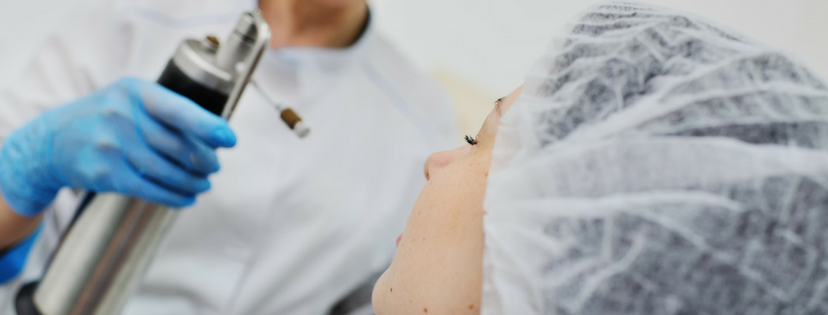
Treating skin cancers
7 October 2016
As with every type of cancer, when we think about treating skin cancers, we know that the earlier a skin cancer is caught, the smaller it is and, therefore, the easier it will be to treat. Getting regular skin checks is vital to detecting skin cancers early. For further information regarding how often you should get a doctor to check your skin, read our blog here.
One reason people delay getting skin checks, particularly if they have a lesion that is worrying them, is fear of what the treatment will involve.
There are two categories of skin cancer:
- Melanoma, and
- non-melanoma skin cancers
To read more about both these types of skin cancers, read our blog post here.
Once you have been diagnosed with a skin cancer, usually following a skin biopsy, your doctor will discuss treatment options with you. Many options were not available until recently, allowing more choice and, often, more sophisticated cosmetic outcomes than were previously experienced.
Different types of skin cancer, different types of skin and the stage of the disease at diagnosis (that is, how developed the cancer is) can all affect the choice of treatment.
Skin Cancer Surgery
The most common treatment is a small surgical excision, which removes the cancer from the skin. For many people, this can be performed under a local anaesthetic, in a doctor’s rooms and no further treatment is needed. Depending on the location and size of the cancer, this procedure may be performed by a plastic surgeon, to ensure scarring is minimal. This scar will fade with time but can be cosmetically improved with newer laser treatments, such as Fraxel laser.
Radiotherapy
Radiotherapy can be used to treat non-melanoma cancers. It may be performed as a stand-alone treatment or following skin cancer surgery, if there is a chance the cancer may have spread beyond the lesion site. This treatment is more common for elderly patients, if a large area is to be treated or if the cancer is on an area of skin that is challenging to operate on. Most patients will have a series of radiotherapy treatments to achieve the highest rate of cancer clearance.
Photodynamic Therapy (PDT)
PDT is suitable for more superficial skin cancers, as the light used in this therapy does not penetrate deeply enough into the skin to reach the cancer cells.
This treatment is an alternative to surgery for suitable cancers and is a newer form of skin cancer management. PDT can be used on basal cell cancers as well as actinic keratoses and Bowen’s disease.
A light sensitising cream is applied to the area of skin to be treated. The cream is then absorbed into the damaged skin cells. This application and absorption process can take a few hours. The skin is then exposed to a photodynamic light, which destorys the skin cancer cells. PDT may provide a more pleasing cosmetic outcome than skin cancer surgery.
Immunotherapy Cream
Imiquimod cream (known as Aldara) can be used to treat superficial basal cell cancers. This cream is applied to the area affected by skin cancer. The cream then “turns on” your body’s immune cells causing them to destroy the skin cancer. The area can be red and inflamed during the treatment period but will often give a better cosmetic result than skin cancer surgery.
Chemotherapy Cream
Fluorouracil cream (known as Efudix) can be used to treat precancerous lesions, called actinic keratoses, which, if left untreated, may develop into squamous cell cancers. The cream is applied to the sun damaged area over a period of time, attacking the damaged cells. Again, like treatment with Aldara cream, you may experience some redness and irritation during the treatment period.
For patients facing a diagnosis of skin cancer, the good news is that we can offer more options for treatment, which are more effective and cosmetically elegant than ever before. Keep up diligent sun protection and regular skin checks to give yourself the best chance of negative outcomes from skin cancer.
Share
Written by Dr Marianne Nolan.
Dr Nolan is a cosmetic physician and highly experienced skin specialist.



